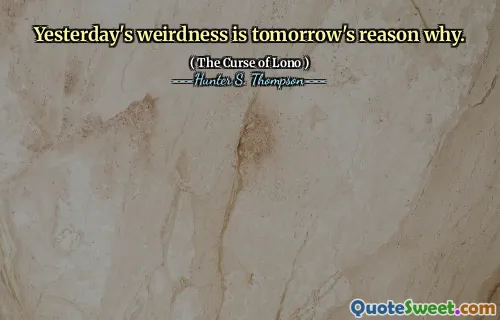
What's all this about sin, eh?''That,' I said, very sick. 'Using Ludwig van like that. He did no harm to anyone. Beethoven just wrote music.' And then I was really sick and they had to bring a bowl that was in the shape of like a kidney.'Music,' said Dr. Brodsky, like musing. 'So you're keen on music. I know nothing about it myself. It's a useful emotional heightener, that's all I know. Well, well. What do you think about that, eh, Branom?''It can't be helped,' said Dr. Branom. 'Each man kills the thing he loves...
The conversation reflects a deep frustration over the misuse of music, exemplified by Beethoven's work. The protagonist is overwhelmed by the thought that his beloved composer is being disrespected, emphasizing the inherent goodness in Beethoven's music. This sentiment reveals a struggle with understanding how something beautiful can be tainted by negative actions or thoughts, leading to a physical reaction marked by sickness.
Dr. Brodsky acknowledges his ignorance about music, viewing it merely as a tool for emotional enhancement. In contrast, Dr. Branom brings a poignant perspective by quoting that people inevitably destroy what they cherish. This line underscores the theme of universal suffering and the conflict between love and destruction, suggesting that even the most beautiful aspects of life can be overshadowed by negative human behavior.








